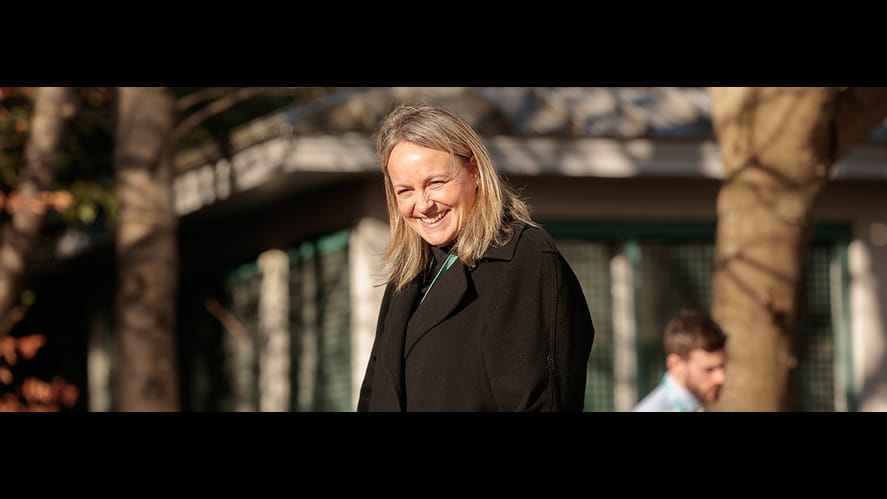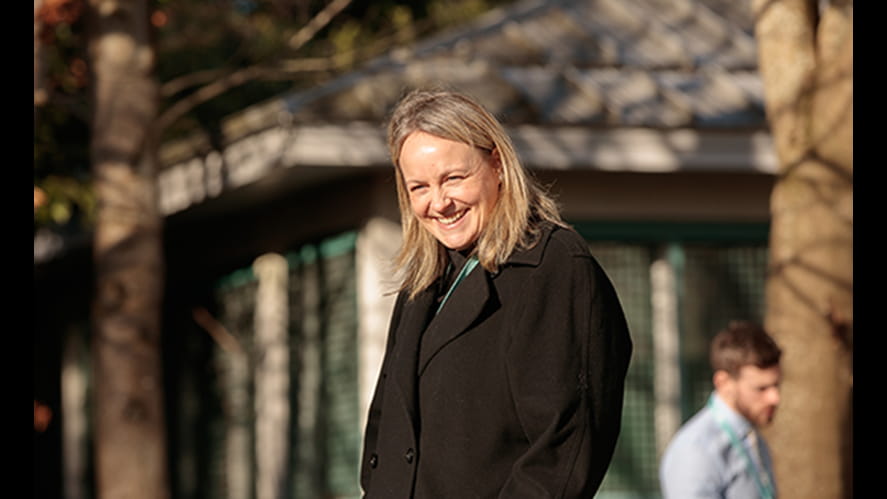Teacher Talk NAIS Dublin’s head of primary Lisa Cannell shares how it’s a daily privilege to watch a child learn and why it’s important for young people to have an education that enriches both the mind and soul.

What led you to become a teacher?
Lisa Cannell: I don't know at what point it became a career path, but what I do know is that from a young age I loved being around people. I knew I wanted a job where I would be working alongside others that was creative.
I liked the fact that each and every day was different and that it brought different challenges. You would go into a classroom and work on a variety of things from talking about stories and story language, to problems in the world. Most of all though it was about being with people.
What inspires you every day?
Cannell: For me I think it's a privilege to watch someone learn. It sounds basic but to be able to see someone make progress and see how it feels for that individual is inspiring.
We had a child who joined us this year and when she came to look around the school she was quite emotional because she had had a difficult time in her last school. By Christmas, at our first concert she stood on stage in front of everybody and sang a song from the musical “Wicked” — she was awesome. To watch the progress she made socially and emotionally was inspiring. Seeing people go outside of their comfort zone and be nurtured; to be able to experience something new is what inspires me every day.
What would you change about Education today?
Cannell: I would make it mandatory for all schools to provide a balanced curriculum for their students. You want to be part of an international school where all subjects are respected and valued, where students have access to the arts, access to languages, cultural experiences, STEAM, IT. When I moved back to the UK what I found was that there was a huge pressure to reduce enriching subjects and replace them with more focus on Maths and English. I understand standards in English and Maths are important. However, I also think education should be about enriching the soul, it's not just about raising robots.
Can you name three skills teachers need to inspire students to develop in order to thrive outside of the classroom?
Cannell: Number one for me would be emotional intelligence. In the past the teacher was viewed as the fountain of all knowledge and children needed to take in this knowledge through osmosis. I believe an effective education is about relationships, they are vital for children to succeed.
When we moved back to the UK one of the first questions my son asked me on his first day of school was "what if my teacher doesn't like me?" And I said to him: "Of course she'll like you. Why wouldn't she like you?" That was the biggest thing he was worried about; would he be liked? Would he be cared for? Until you develop that relationship and children feel they're valued, I believe they can succeed. Teachers are there to nurture talent and sow seeds of belief in their students. I also believe very strongly that children should be treated with respect.
The second skill is for teachers to be open-minded. Sometimes when you're an experienced teacher you want to control all aspects of your classroom. What's interesting about that is when you teach the IB curriculum our teachers use an enquiry-based approach where students are allowed to have their own voice and are allowed to take control of their own learning. You want to empower your students, but to do that you have to relinquish a certain amount of control and that can be quite difficult. When you teach using an enquiry-based approach you have to be more open-minded because you don't know where things are going to end up. For this kind of work you need to be open-minded.
The last skill we should inspire them to learn is to be reflective. It's important for teachers, leaders and students to be reflective by being able to look at themselves and be honest. When I say honest, I think sometimes teachers can be hard on themselves. They often talk about the negative things, what they want to put right, or the things they want to improve and in some ways that sets unrealistic goals. What we need to model to our students is to also recognise what they’re good at.
What do you wish you knew before you became a teacher?
Cannell: My husband's a teacher, and so I asked him this question too. The answer's a bit contentious. I don't believe becoming a parent makes you a better teacher, but I do think becoming a parent changed my view on the world and made me think differently about children and about parents.
When you become a parent all of a sudden you're placed in a vulnerable position where there can be a lot of uncertainty. Sometimes you feel completely powerless and clueless with this huge sense of responsibility. I understand when parents come into school upset, they may have overreacted about something or they feel frustrated. I genuinely understand how that feels because you want the best for your child, I haven't met a parent who doesn't want the best for their child. To be able to recognise that and see where their frustration is, what’s going on, where they're coming from is very important.
Now that I have my own children it’s changed me to understand that relationships are incredibly important. It made me want to focus on the well-being of students. Becoming a parent has made me more patient and understanding.
Having said all that, I don't think being a parent makes you a better teacher. I do think being a parent can help you understand parents better. And I think it gives you even more empathy with allowing children to have a voice.

